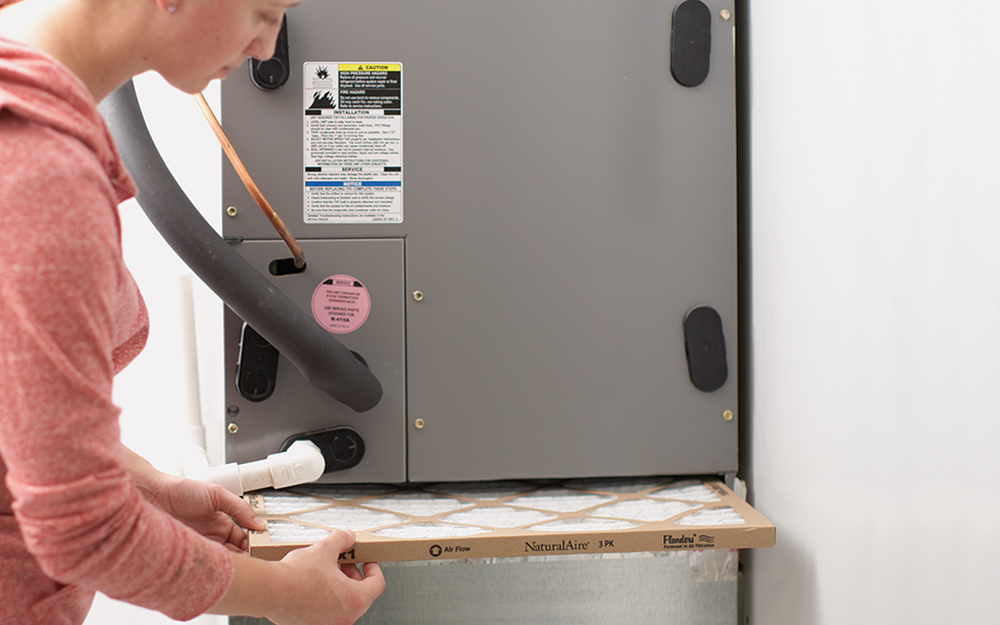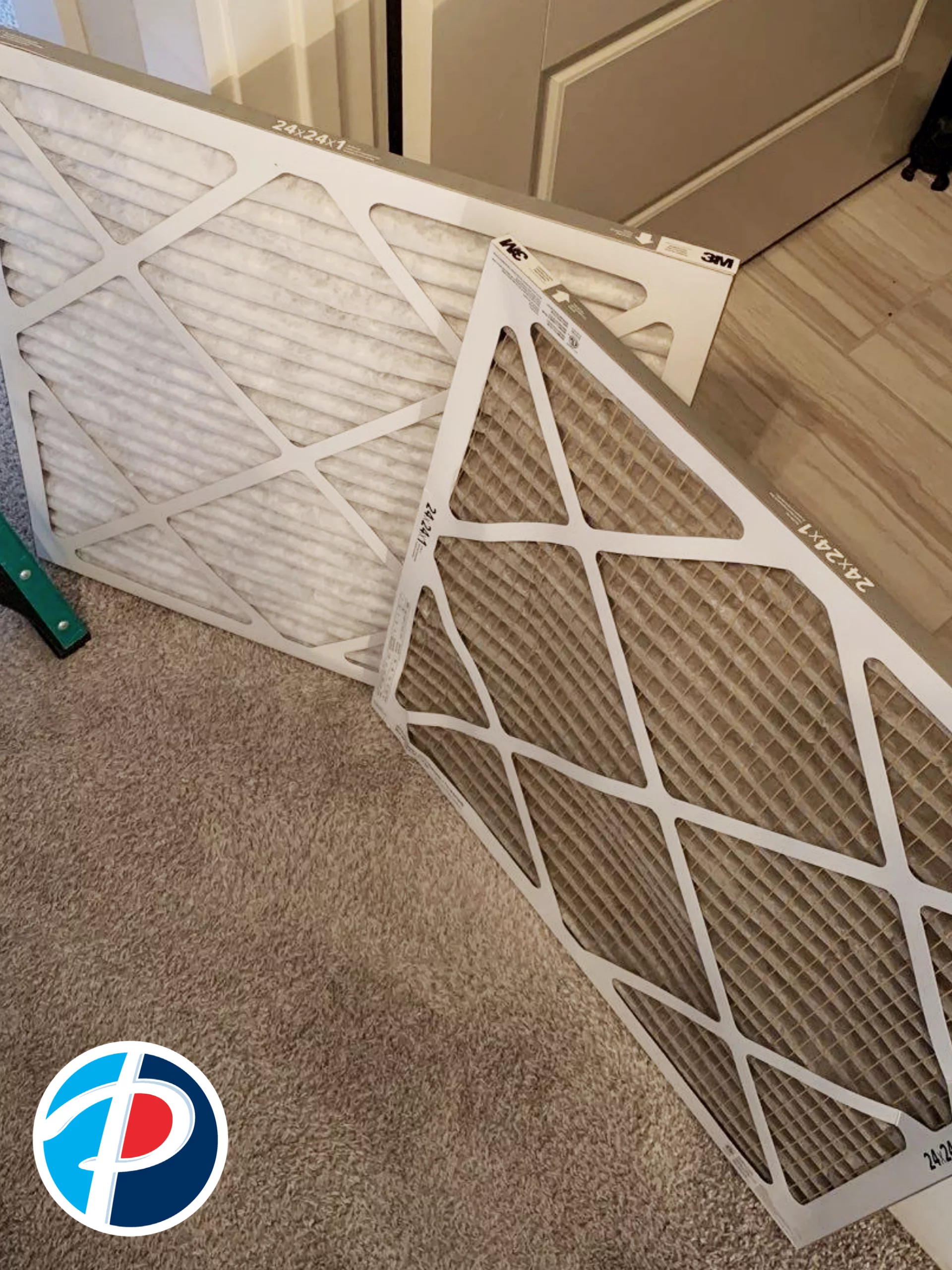How Often to Change Air Conditioner Filter
Change your air conditioner filter every 30 to 90 days. Frequency depends on usage and indoor air quality.
Regularly changing your air conditioner filter is crucial for maintaining optimal performance and air quality. Dirty filters can lead to reduced efficiency, higher energy bills, and potential damage to the system. Homes with pets, allergies, or high pollution levels may require more frequent changes.
A clean filter ensures proper airflow, enhances cooling efficiency, and extends the lifespan of the unit. By adhering to a regular filter replacement schedule, you can avoid costly repairs and enjoy a comfortable living environment. Always check the manufacturer’s guidelines for specific recommendations tailored to your air conditioning system.

Credit: www.homedepot.com
Introduction To Ac Filter Maintenance
Clean filters are very important for your air conditioner. They help the air stay fresh and clean. Dirty filters can make your AC work harder. This can cause higher energy bills and less cool air. Changing filters on time can save money and keep the air clean.
Dirty filters can harm the air you breathe. They trap dust, pollen, and other particles. Clean filters ensure healthy air in your home. Filters also affect how well the AC works. Clean filters help the AC run smoothly and efficiently. This keeps your home cool and comfortable.
Identifying Your Ac Filter Type
Air conditioner filters come in two main types: disposable and reusable. Disposable filters are cheap. They are made to be used once. Reusable filters cost more but last longer. They can be cleaned and used again. Choose based on your needs and budget.
Filters are made from different materials. Each has a different lifespan. Fiberglass filters last about one month. Polyester filters last up to three months. Pleated filters can last three to six months. Reusable filters can last for years with proper care.
Factors Affecting Filter Change Frequency
Homes with high dust and allergen levels need frequent filter changes. Dust accumulates quickly in such homes. This can block the air filter. Filters work best when clean. Changing them often ensures better air quality.
Frequent AC usage shortens filter life. Filters trap more dust and particles. Running the AC daily needs more frequent changes. Less usage means filters last longer. Adjust filter changes based on how much you use the AC.
Pets shed hair and dander. This clogs filters faster. Homes with pets need frequent filter changes. Multiple pets increase the need even more. Keeping pets clean can help. But filters will still need frequent changes.
Manufacturer Recommendations
Air conditioner filters should be changed every 30-90 days based on manufacturer recommendations. Regular replacement ensures optimal performance and air quality.
Standard Guidelines
Manufacturers often suggest changing the air conditioner filter every 30 to 90 days. This helps keep the air clean and the system running smoothly. Regular replacement can prevent dust and debris buildup. Some filters may last up to six months. Always check the product manual for specific advice.
When To Deviate From Manufacturer Advice
Change the filter more often if you have pets at home. Pet hair and dander can clog the filter. Allergy sufferers may also need frequent changes. Dusty environments or high pollution areas can shorten the filter’s life. Larger households might need to replace the filter more frequently. Always ensure the filter is clean for better air quality.
Signs Your Ac Filter Needs Changing
Visible dirt on your AC filter is a clear sign. Filters should be clean to work well. Clogged filters block airflow. This can make your AC work harder. A dirty filter can even damage your AC unit. Check your filter every month. Replace it if you see dirt and dust.
Reduced airflow means your AC filter is dirty. Your rooms may not cool as fast. The AC may run longer to reach the set temperature. This wastes energy and raises your bill. A clean filter helps your AC run smoothly. Always keep an eye on airflow.
Unusual noises from your AC can be a red flag. Strange smells are also a bad sign. These issues often mean your filter is dirty. A clean filter can stop these problems. Changing the filter can make your AC quieter and fresher.
Changing Your Ac Filter: A Step-by-step Guide
Gather the needed tools. You will need a new filter, a screwdriver, and a cloth. Make sure the AC unit is off. This will ensure your safety. Check the filter size. This is usually written on the old filter. You can also check the AC manual for this information.
Locate the filter compartment. It is often near the return air duct. Use the screwdriver to open the compartment. Carefully pull out the old filter. Be gentle to avoid dust spreading. Place the old filter in a plastic bag. Dispose of it properly.
Check the new filter for the airflow arrow. This arrow shows the direction of airflow. Place the new filter in the compartment. Ensure the arrow points toward the AC unit. Close the filter compartment securely. Turn the AC unit back on. Enjoy cleaner air.
Advanced Tips For Optimal Filter Performance
Changing your air conditioner filter every 1-3 months ensures optimal performance and air quality. Regular maintenance prevents clogs and extends the lifespan of your system. Keep your home environment clean and energy-efficient by adhering to this simple routine.
Enhancing Air Quality With Hepa Filters
HEPA filters are great for clean air. They trap dust, pollen, and pet dander. Change HEPA filters every 2-3 months. This keeps the air fresh and healthy. Clean filters help the AC work better. Always check the filter for dirt. If it looks dirty, change it sooner. Clean filters are important for good health.
Smart Thermostats And Filter Change Alerts
Smart thermostats make life easy. They remind you to change the filter. You get alerts on your phone. This helps you never forget. Clean filters make your home cool and fresh. Smart thermostats save energy too. They help the AC run smoothly. Keeping the filter clean is very important.

Credit: gopaschal.com
Troubleshooting Common Ac Filter Issues
Persistent dust can clog your air filter. It can reduce the efficiency of your AC. Regular cleaning of your home helps. Vacuum carpets and sweep floors often. Replace the air filter every one to three months. This helps keep the air clean. Clean air ducts can also help. Dust can build up in them over time. Professional cleaning might be needed. Always check the filter for dust. A dusty filter needs changing.
Mold and mildew can grow in a damp filter. This can cause health problems. Always check for musty smells. Replace the filter if you smell anything odd. Mold can spread quickly. It is important to act fast. Use a filter with an antimicrobial coating. This can help prevent mold growth. Clean the area around the AC unit. Moisture can make the problem worse. Keep the area dry to avoid mold. Consider using a dehumidifier. This can help control moisture levels.
Credit: magnoliacompanies.com
Conclusion
Regularly changing your air conditioner filter is crucial for optimal performance. It helps maintain air quality and energy efficiency. Check your filter monthly and replace it every 1-3 months. This simple step can prolong your HVAC system’s lifespan and keep your home comfortable year-round.





